Laura Panella, our guide for the morning, picked us up promptly at 830AM in our hotel lobby, and we were soon off to our first stop of the day, a Parmesan cheese producer.
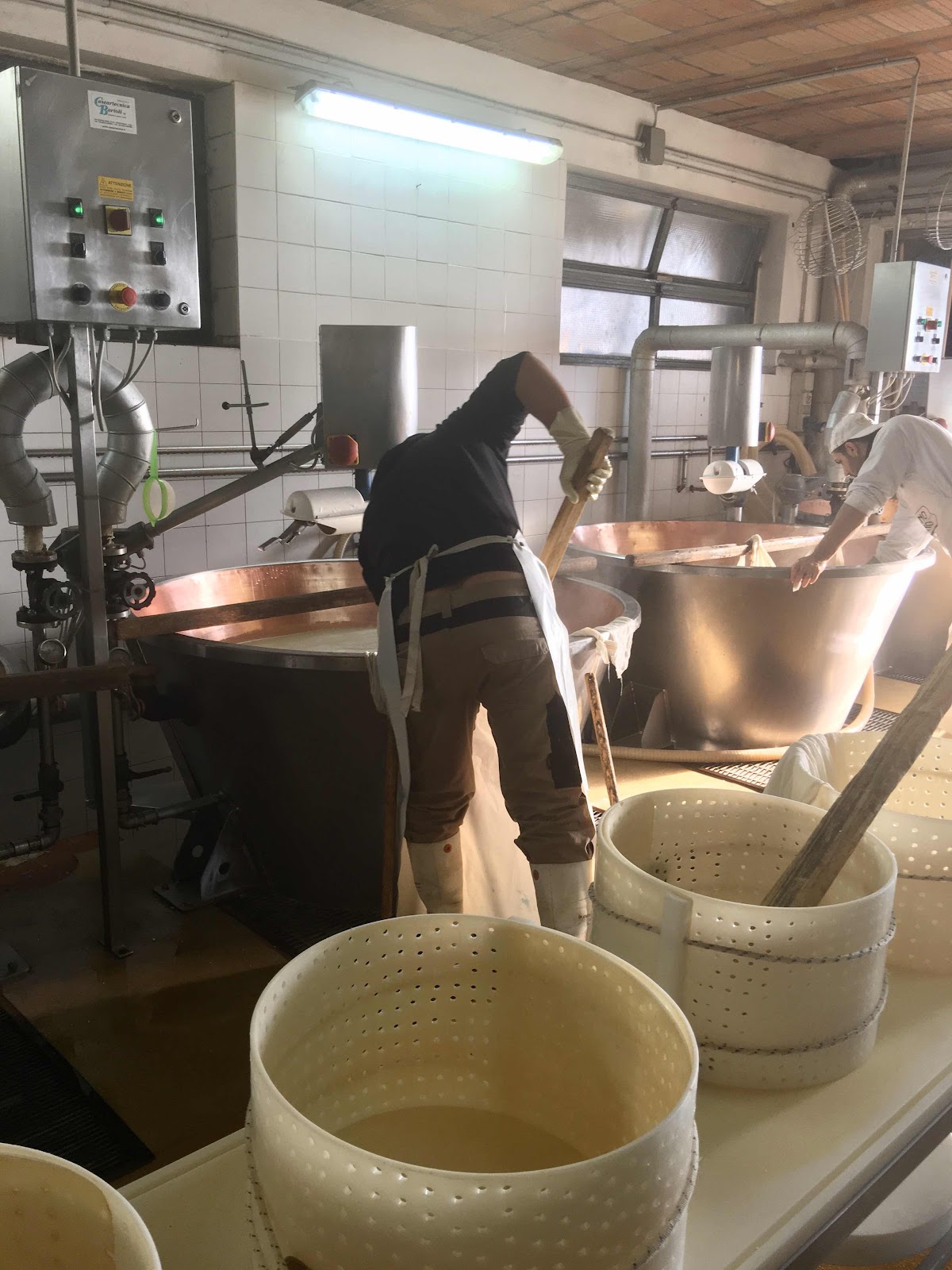
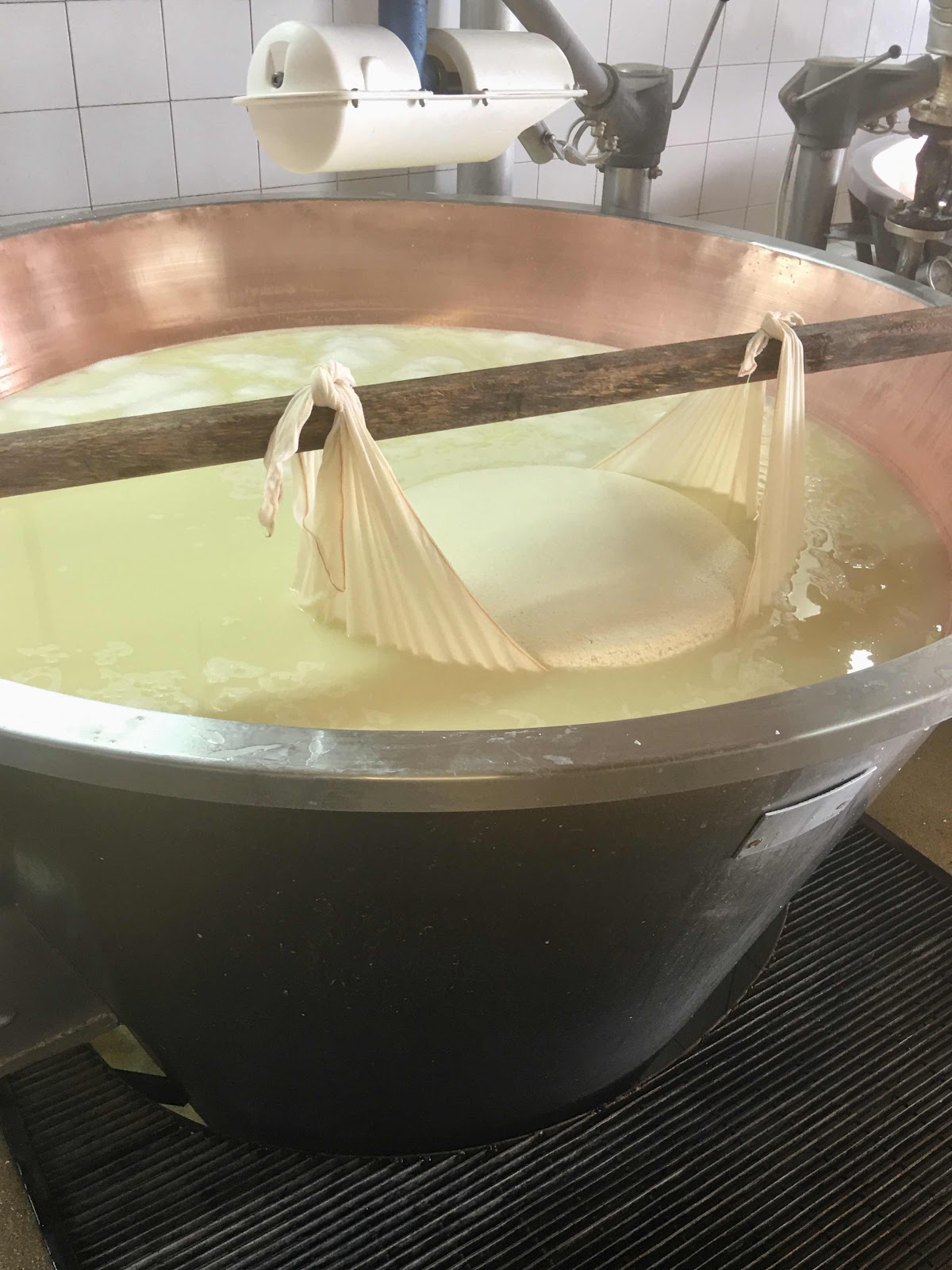
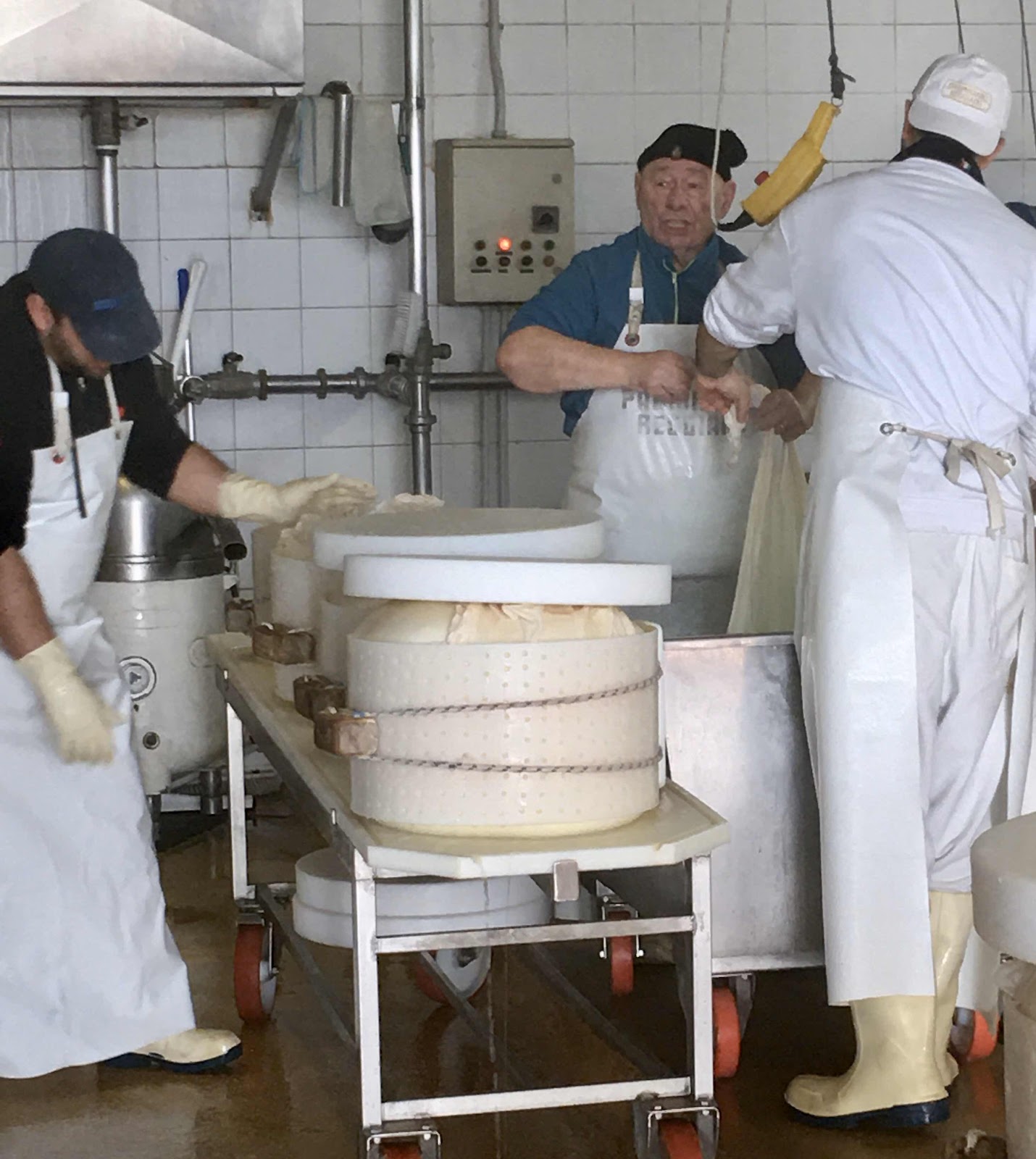
We met the head cheesemaker, Giorgio, an active 79-year-old who shows passion for his product.
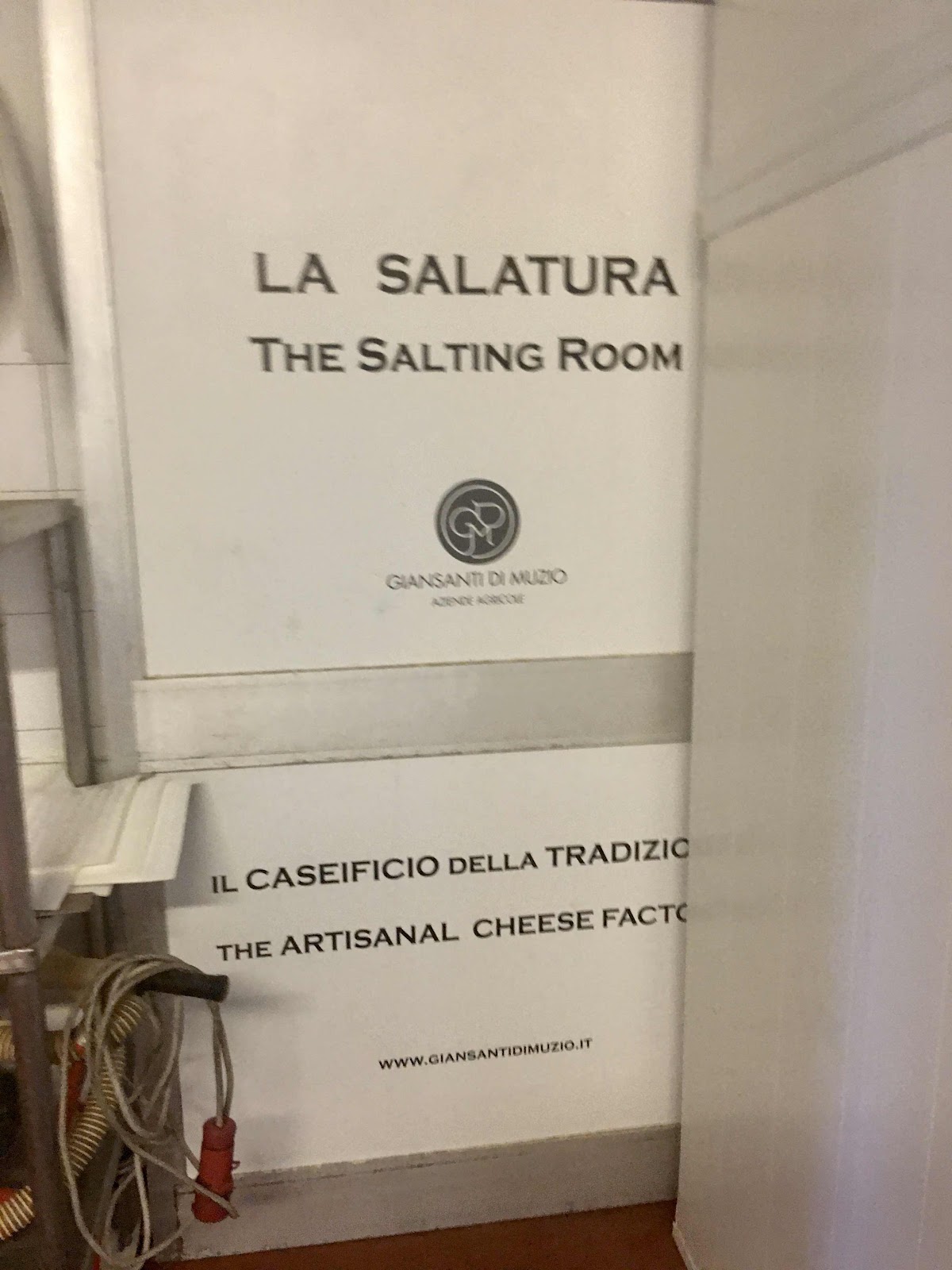

In the cavernous aging room, we spend some time with the “Big Cheese,” himself. Giorgio is a charming fellow.

He explained to us a part of the inspection process. The inspector taps the round with a small hammer all over. If the sound reveals a hollow spot, the cheese, while perfectly good, can no longer be as Parmigiano Reggiano. If you ever see cheese inscribed with parallel lines, it’s a “factory second”


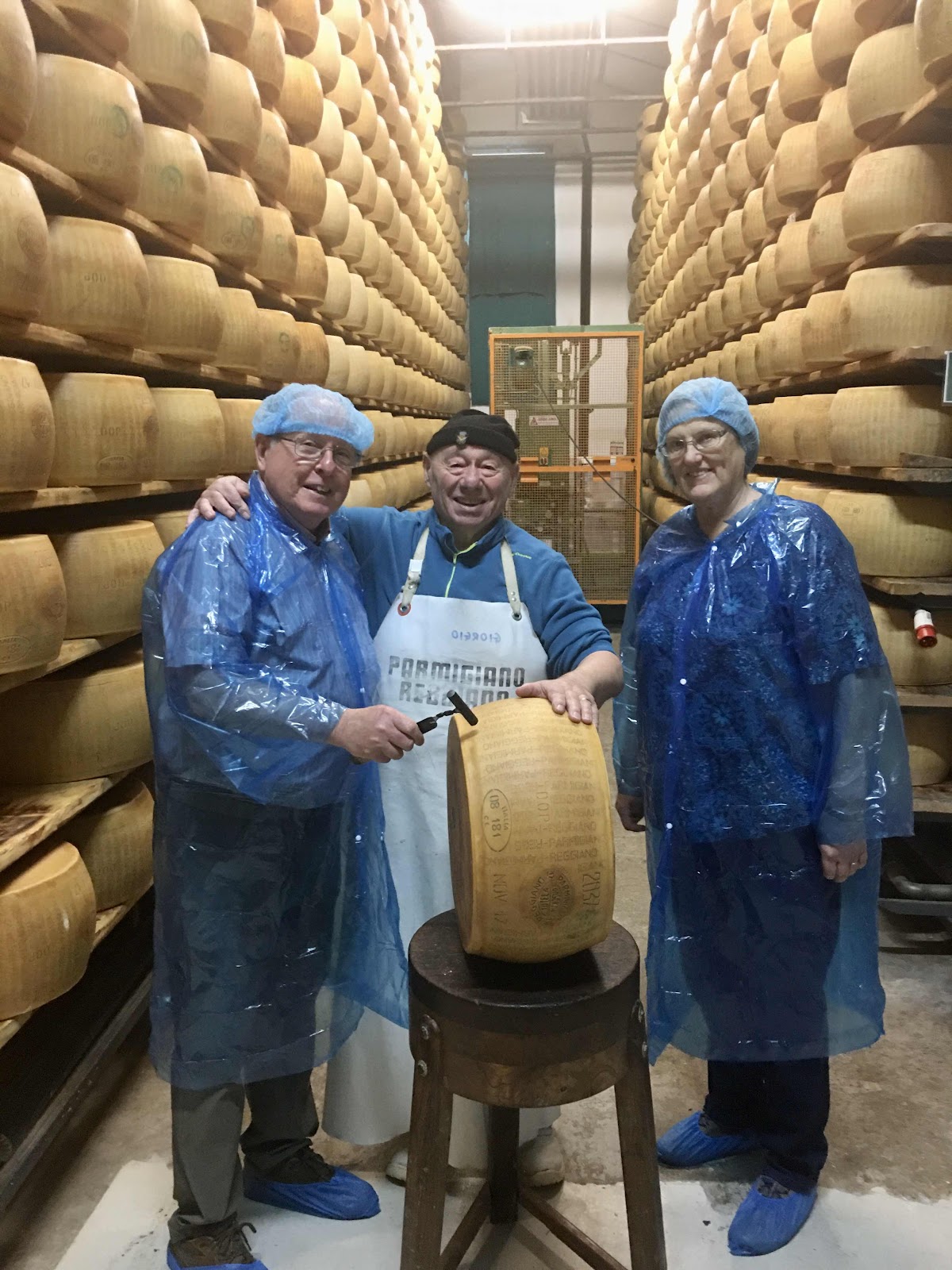
The aging facility seems massive. This facility ages cheese to 12, 24, 36, and 40 month minimums.
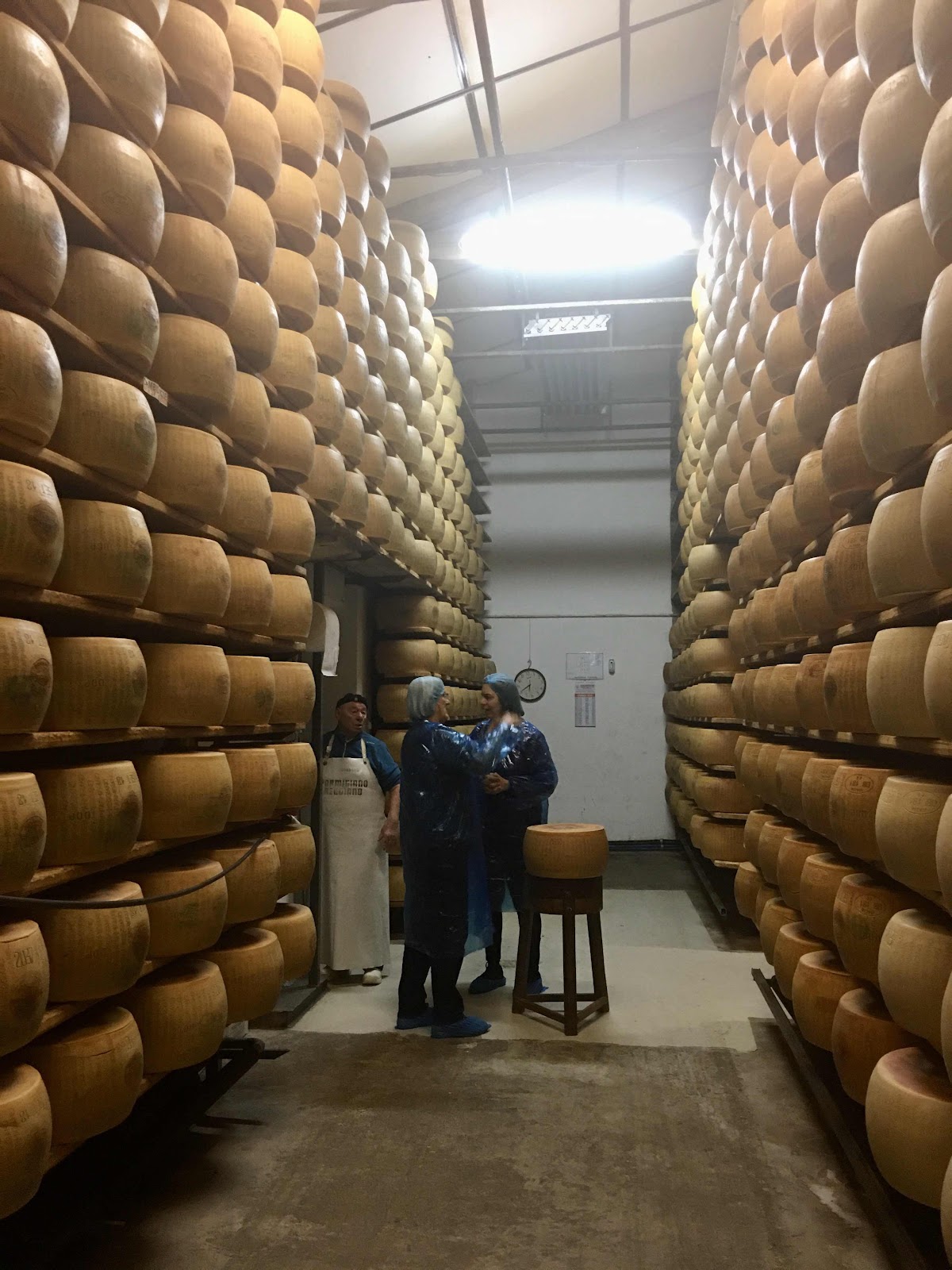
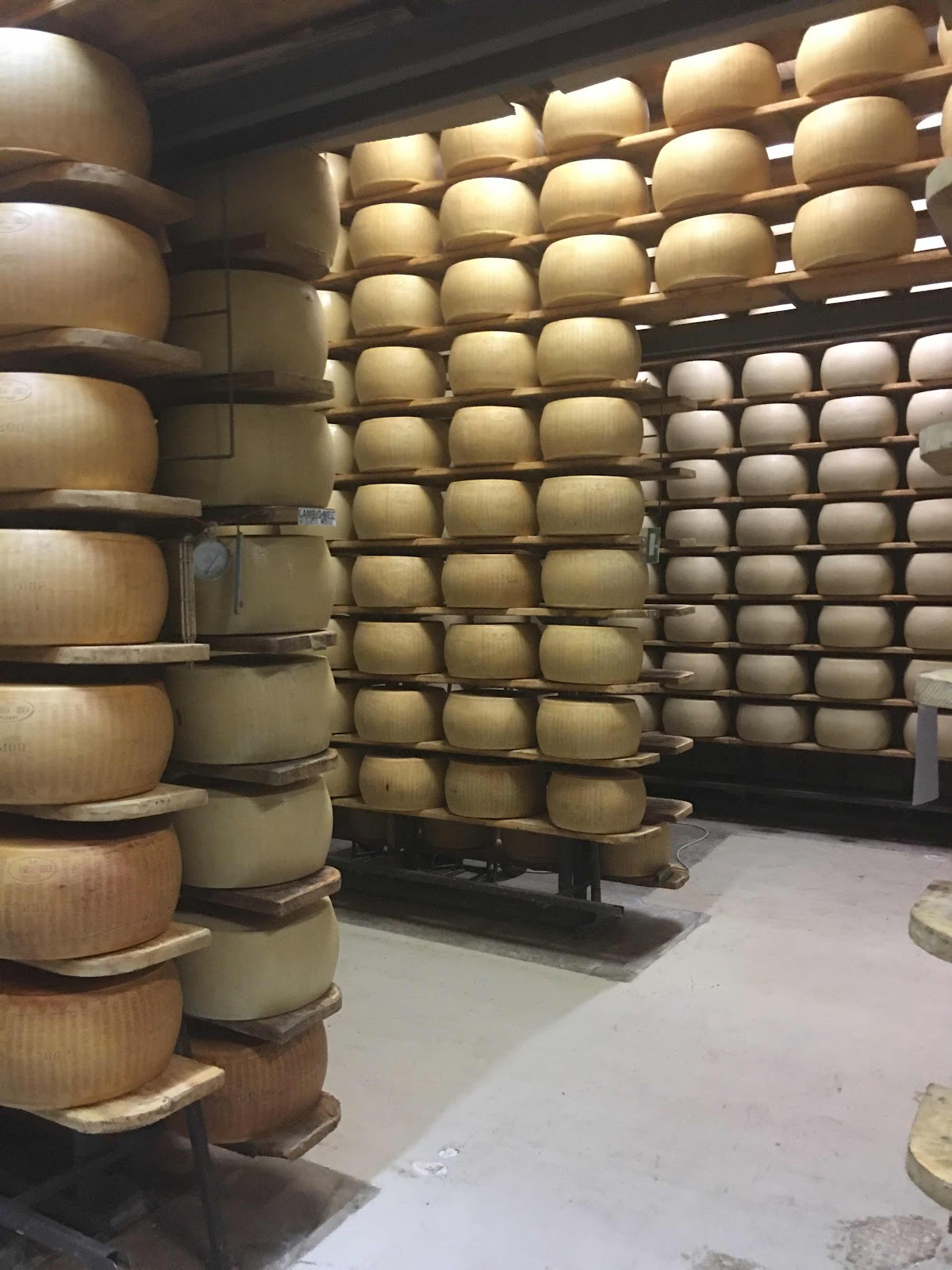
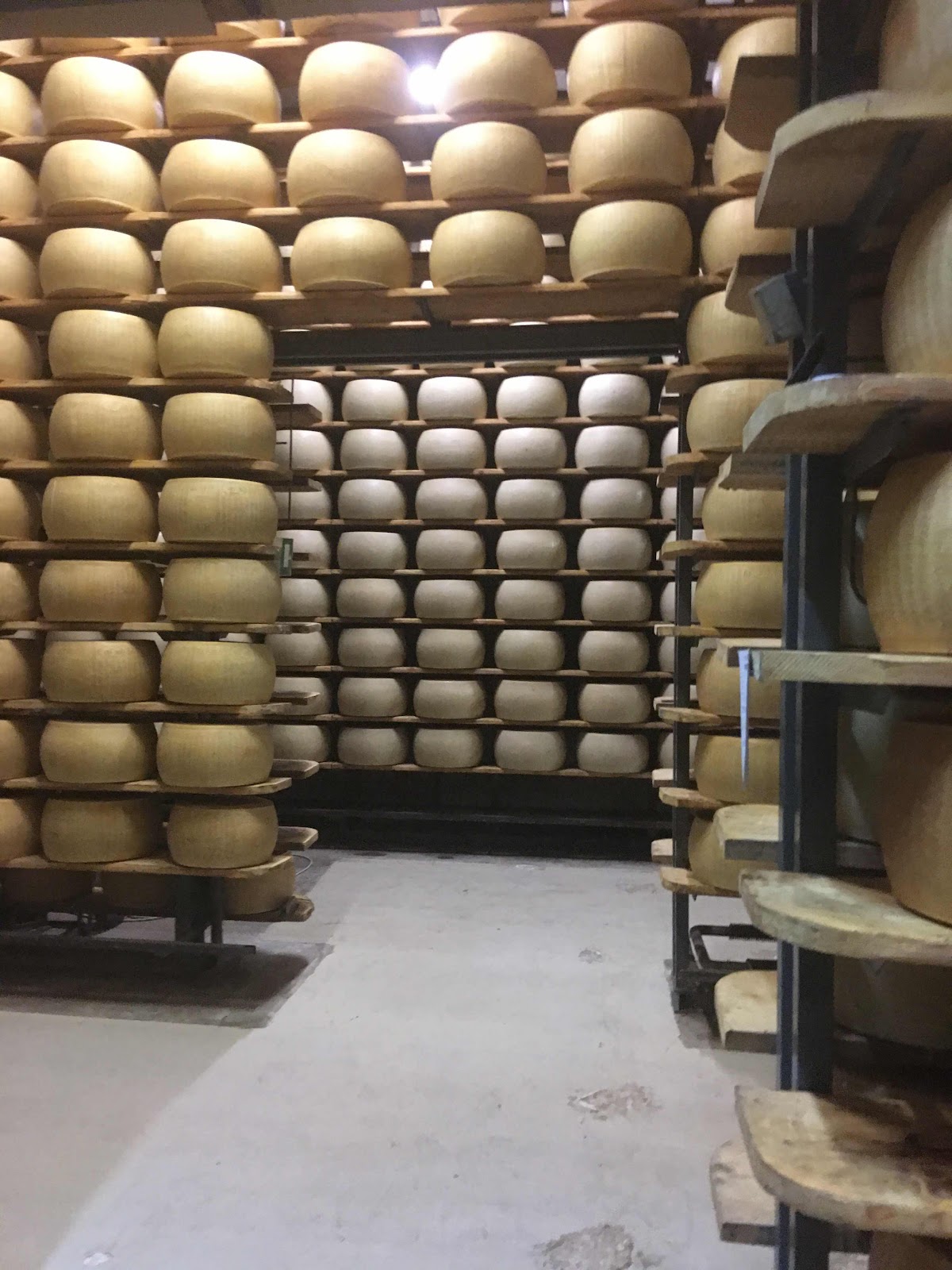
Back in their modern little shop, we bought enough cheese, aged to a minimum of 36 and 40 months, to turn our rollaboards into checked baggage.
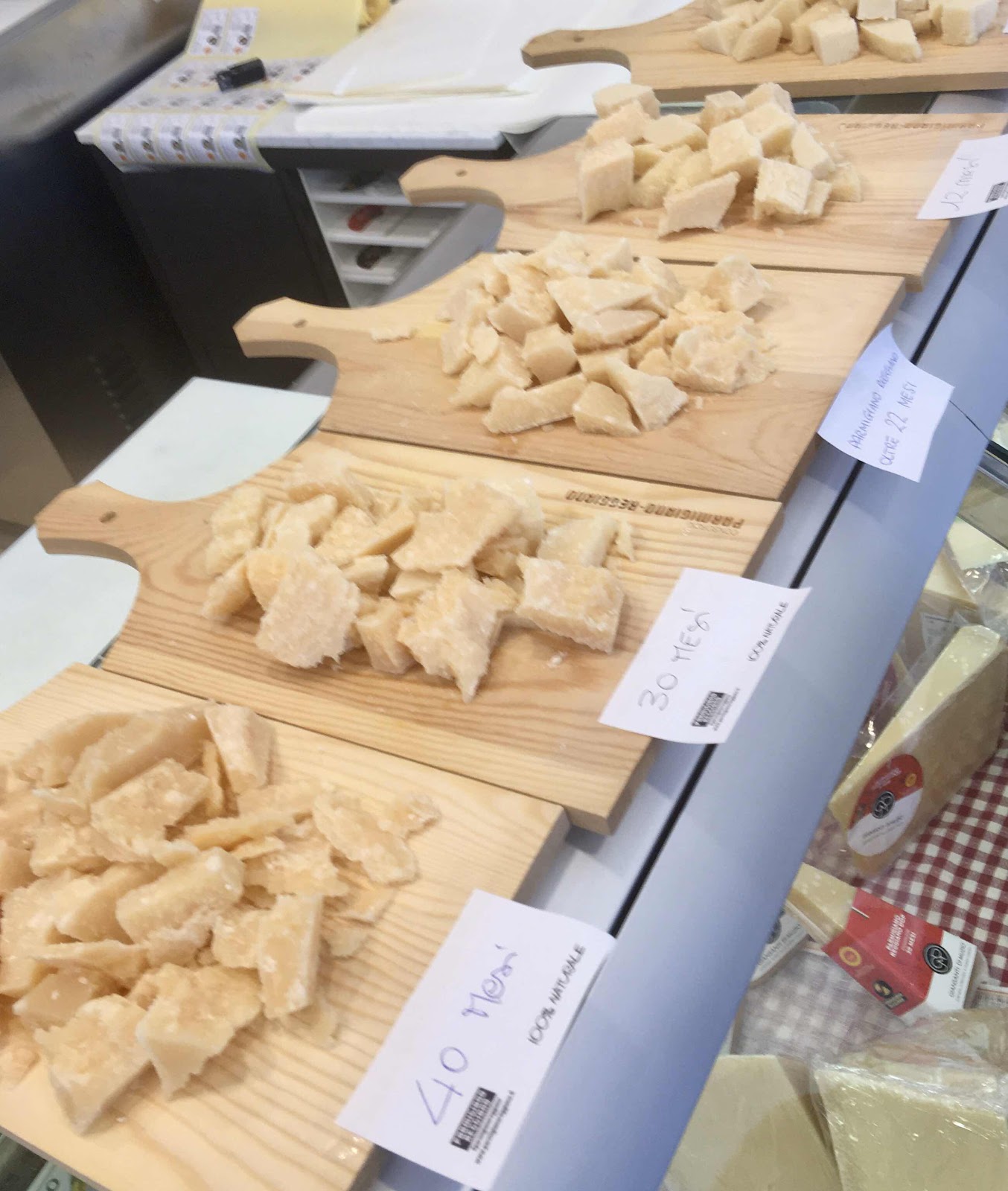
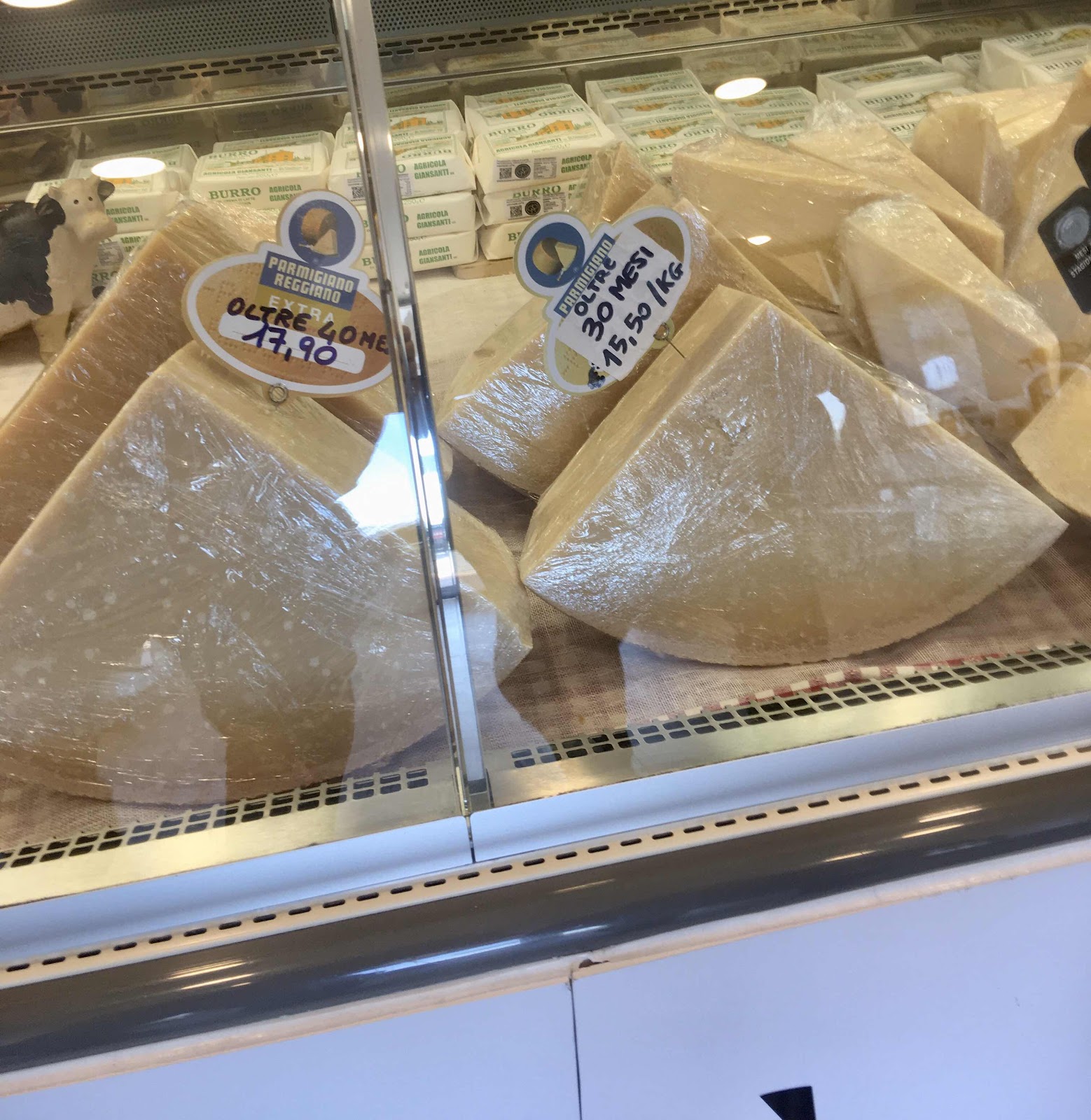
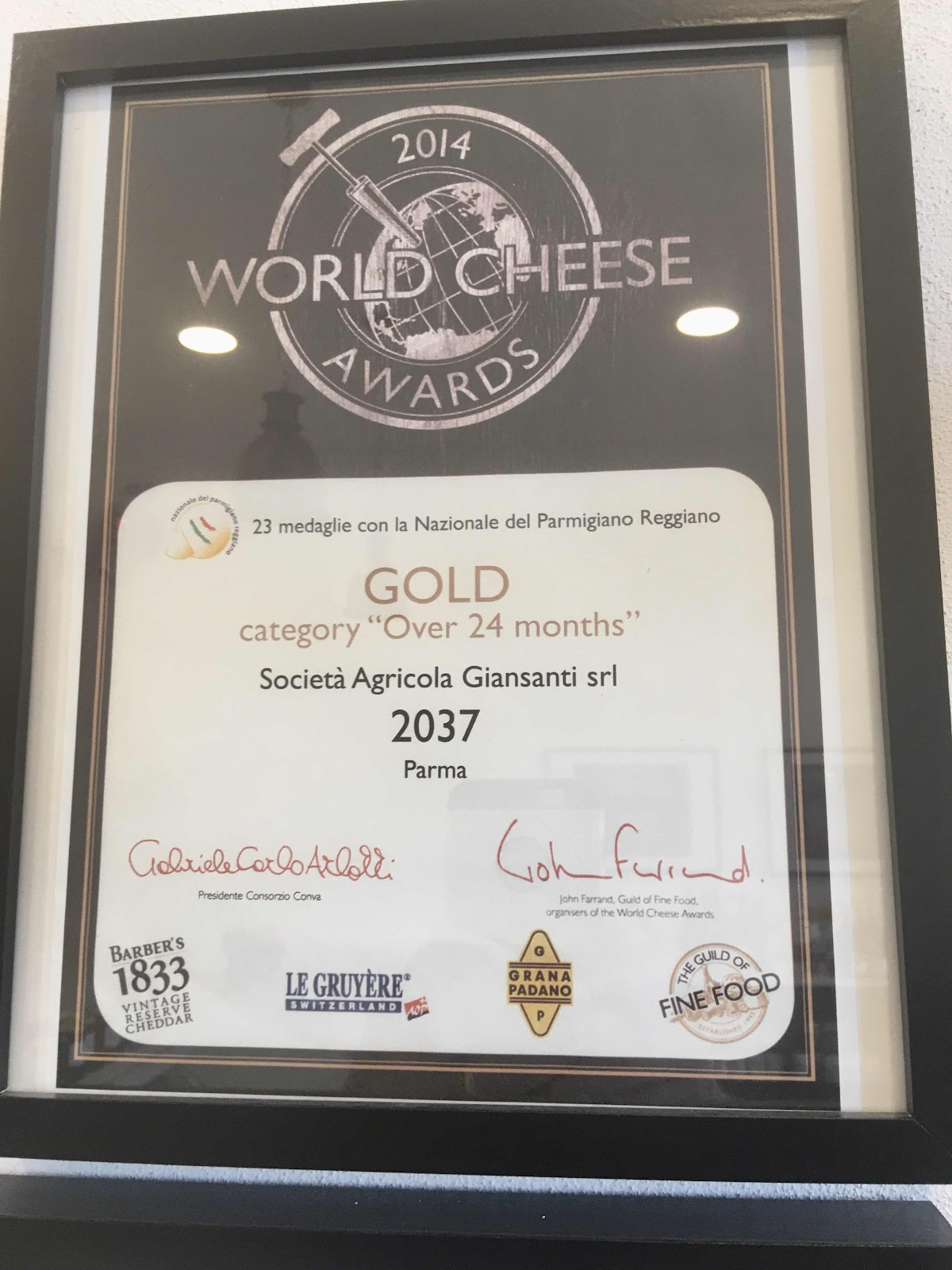
We learned that Parmesan takes a lot of labor, and we will appreciate our Parmigiano Reggiano that much more from now on.
We donned our plastic coats and hats, and arrived in time to see workers pulling the large globes of curds out of the massive copper pots in linen (much stronger than cotton) and squeezing them into the molds that turn them into rounds of Parmesan cheese.
We met the head cheesemaker, Giorgio, an active 79-year-old who shows passion for his product.
The Salting Room is one part of the process.
In the cavernous aging room, we spend some time with the “Big Cheese,” himself. Giorgio is a charming fellow.
He explained to us a part of the inspection process. The inspector taps the round with a small hammer all over. If the sound reveals a hollow spot, the cheese, while perfectly good, can no longer be as Parmigiano Reggiano. If you ever see cheese inscribed with parallel lines, it’s a “factory second”
Incidentally, there’s no wax on the rind; every bit of it, right down to the markings, is perfectly edible. Italians sometime use the rind in soups.
The aging facility seems massive. This facility ages cheese to 12, 24, 36, and 40 month minimums.
Back in their modern little shop, we bought enough cheese, aged to a minimum of 36 and 40 months, to turn our rollaboards into checked baggage.
It’s fun to compare the different “vintages.” The older the cheese, the darker the color.
We learned that Parmesan takes a lot of labor, and we will appreciate our Parmigiano Reggiano that much more from now on.
No comments:
Post a Comment
Comments are welcomed.